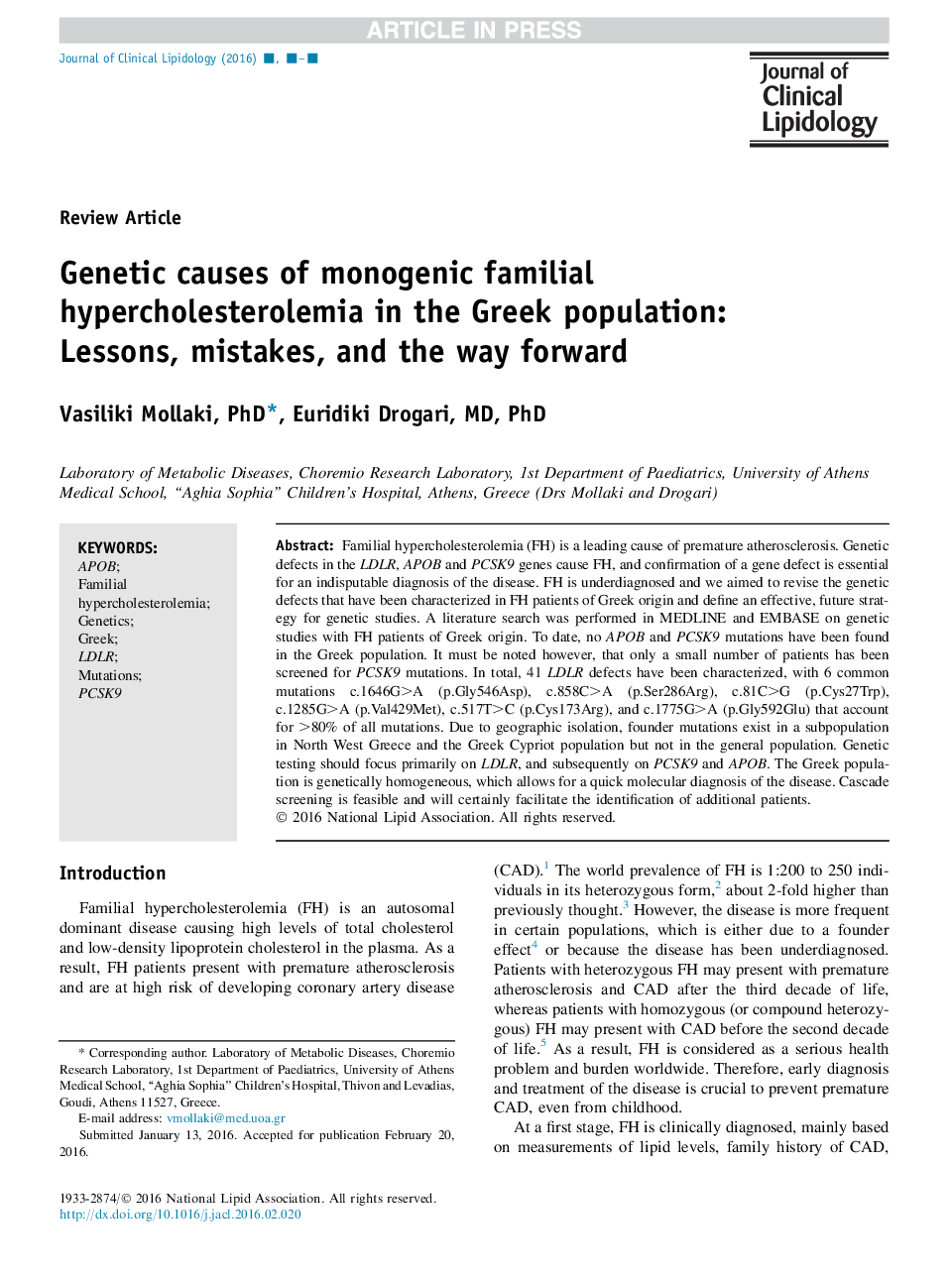| Article ID | Journal | Published Year | Pages | File Type |
|---|---|---|---|---|
| 5615265 | Journal of Clinical Lipidology | 2016 | 9 Pages |
Abstract
Familial hypercholesterolemia (FH) is a leading cause of premature atherosclerosis. Genetic defects in the LDLR, APOB and PCSK9 genes cause FH, and confirmation of a gene defect is essential for an indisputable diagnosis of the disease. FH is underdiagnosed and we aimed to revise the genetic defects that have been characterized in FH patients of Greek origin and define an effective, future strategy for genetic studies. A literature search was performed in MEDLINE and EMBASE on genetic studies with FH patients of Greek origin. To date, no APOB and PCSK9 mutations have been found in the Greek population. It must be noted however, that only a small number of patients has been screened for PCSK9 mutations. In total, 41 LDLR defects have been characterized, with 6 common mutations c.1646G>A (p.Gly546Asp), c.858C>A (p.Ser286Arg), c.81C>G (p.Cys27Trp), c.1285G>A (p.Val429Met), c.517T>C (p.Cys173Arg), and c.1775G>A (p.Gly592Glu) that account for >80% of all mutations. Due to geographic isolation, âfounder mutations exist in a subpopulation in North West Greece and the Greek Cypriot population but not in the general population. Genetic testing should focus primarily on LDLR, and subsequently on PCSK9 and APOB. The Greek population is genetically homogeneous, which allows for a quick molecular diagnosis of the disease. Cascade screening is feasible and will certainly facilitate the identification of additional patients.
Related Topics
Health Sciences
Medicine and Dentistry
Cardiology and Cardiovascular Medicine
Authors
Vasiliki PhD, Euridiki MD, PhD,
